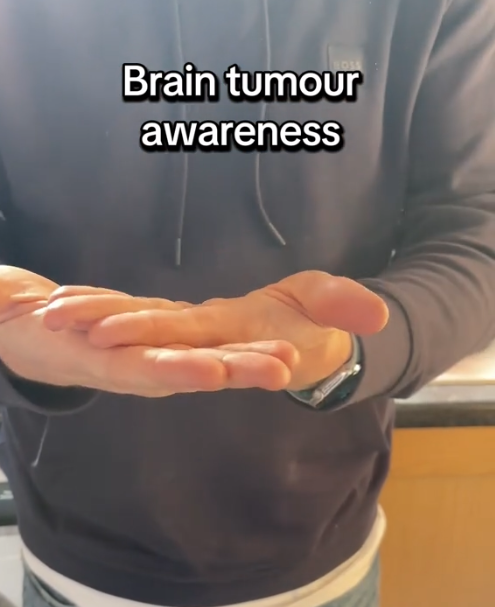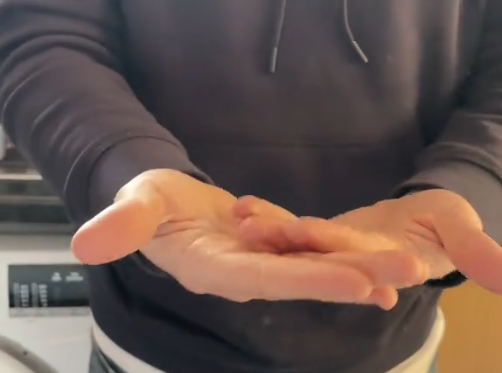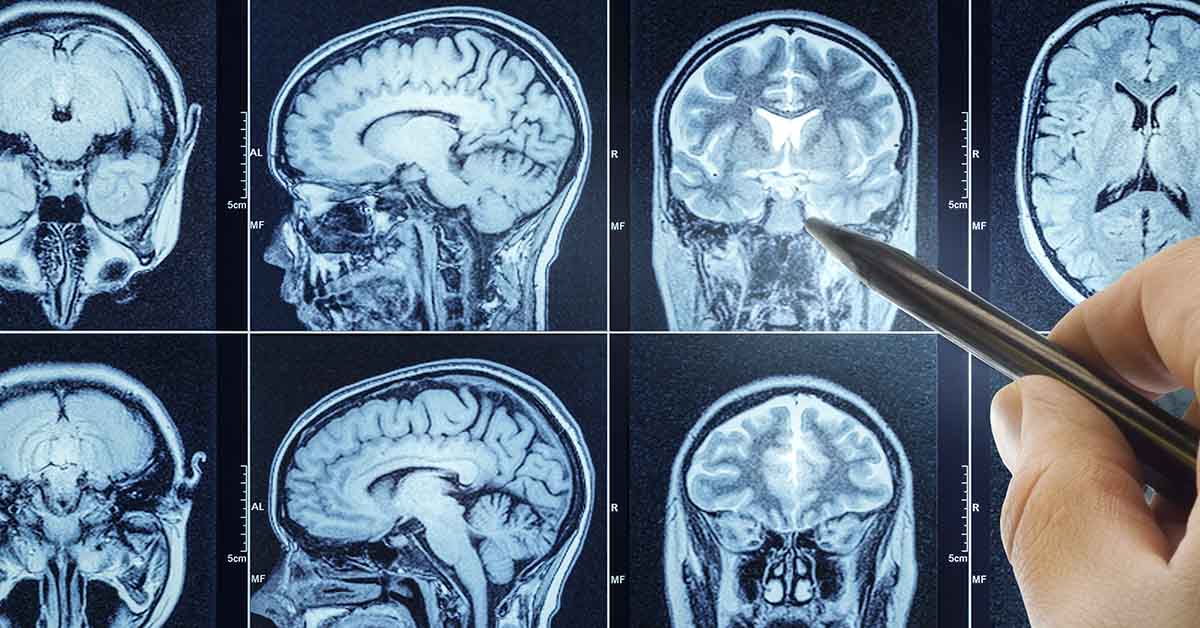A London-based doctor who goes by “Medifectious” on TikTok has gone viral for sharing a quick and fascinating hand test. This simple test could help identify early signs of a brain tumor or other neurological issues. His video, which has racked up more than 185,000 views, shows how to check for something called dysdiadochokinesia (pronounced dis-dee-ad-oh-ko-ki-nee-zee-ah). It’s a medical term for having trouble with rapid, alternating hand movements.
How to Do the Hand Test
- Hold your arms out straight in front of you
- Put your hands facing down
- Turn your hands over so they face up
- Keep flipping your hands from down to up as fast as you can for 30 seconds
Most people can do this test easily. The doctor explains, “If someone has trouble with this, it might indicate a problem in the part of the brain that controls movement.” Healthy people can usually do this smoothly and quickly.
What Does Dysdiadochokinesia Mean?
It means having trouble doing quick back-and-forth movements smoothly. It’s not a disease but a sign that something might be wrong with your brain. This symptom might indicate a tumor or other neurological conditions affecting the cerebellum. People with this problem might notice:
- Being clumsy or dropping things often
- Having trouble with buttons on shirts
- Finding it hard to keep balance when walking
- Moving stiffly or awkwardly, especially with hands
- Having messier handwriting than before

The cerebellum is like a traffic light for your body. It sits at the back of your brain and makes sure all your movements happen in the right order. When something affects it, even simple movements become hard.
Read More: 6 Overlooked Warning Signs of Heart Problems You Need to Know
Brain Tumor Signs: Understanding the Science Behind the Test
The cerebellum, or “little brain,” makes up just 10 percent of your brain’s volume but holds nearly half of its neurons. It fine-tunes your movements without you thinking about them.
During quick movements like the hand-flipping test, the cerebellum coordinates muscle switches and makes tiny corrections in real time. This tests what doctors call “cerebellar timing circuits,” which help control the timing between muscles that turn your palm up and down.
The cerebellum connects to the motor cortex through pathways called cerebellar peduncles. If these pathways are damaged, movement becomes jerky or slow. That’s why this simple test can help detect subtle neurological issues, potentially indicating a brain tumor in its early stages.
What Could It Mean If You Can’t Do the Test Well?
If you can’t do the hand-flipping test well, it doesn’t always mean you have a serious condition. But abnormal results might prompt doctors to investigate further. Cerebellar problems can develop gradually without obvious symptoms at first. Finding these issues early significantly improves treatment outcomes. About 700,000 Americans have brain-related growths, and they can happen at any age.
There are other health problems that might make the test hard too. Multiple sclerosis (MS) can make it tough because it hurts the coating around nerves. Older people who have had a stroke might struggle with the test. Something called cerebellar ataxia, which affects the back of the brain, can also cause trouble with hand movements.
Parkinson’s disease and similar problems might make the test hard to do well. While coordination difficulties may result from various conditions, a tumor requires immediate medical attention. People who have been heavy drinkers for many years sometimes have trouble with movements like this. Even some medicines can affect how you do on the test. Not having enough vitamin B12 in your body is another reason you might find the test difficult.
When to See a Doctor About a Possible Brain Tumor
You should talk to a doctor if you suddenly can’t do a movement that was easy before. It’s also important to get checked if one side of your body works much worse than the other or if you have trouble with everyday tasks.
Watch out for other warning signs, too. If you start having bad headaches, especially in the morning, tell your doctor. The same goes for changes in how you see or speak. Also, tell them if you feel sick or throw up for no reason, feel numbness or weakness in your arms or legs, or if people say you’re acting different or seem confused.
The doctor says, “Finding problems early makes a big difference, especially with brain tumors.” If you’re worried, your doctor will check you and might order a special picture of your brain called an MRI to look for a possible abnormality.
Brain Health: Maintaining Cerebellar Function
- Coordination Activities: Hobbies like juggling, playing musical instruments, or sports like table tennis challenge hand-eye coordination and stimulate cerebellar pathways.
- Balance Training: Exercises like standing on one foot, using a balance board, or practicing yoga improve balance and strengthen cerebellar connections.
- Cognitive-Physical Combinations: Activities like dance, tai chi, or martial arts combine movement and memory, providing great cerebellar exercise.
- Brain-Healthy Nutrition: Foods rich in omega-3s (fatty fish), antioxidants (fruits and veggies), and B vitamins (whole grains, eggs) support brain function. Staying hydrated is also key for preventing serious health conditions.
- Limit Alcohol: The cerebellum is sensitive to alcohol, and excessive drinking can affect coordination.
Brain Tumor Prevention: Why This Test Matters
Doctors have used this test (also called the “pronation-supination test“) for many years. It’s great because anyone can do it at home in just seconds without special tools to check for signs of neurological issues.

TikTok has helped more people learn about this test. The doctor says, “Knowing about your health gives you power. But remember, social media should be just the start of learning about your health, not the end.” Paying attention to how your body normally works helps you notice when something changes. Have you tried the test? Your coordination matters, and noticing changes in your body could make a big difference in the early detection of serious conditions like brain tumors.
Read More: Stomach Cancer in Young Adults Is Increasing—Watch for These 6 Early Signs

